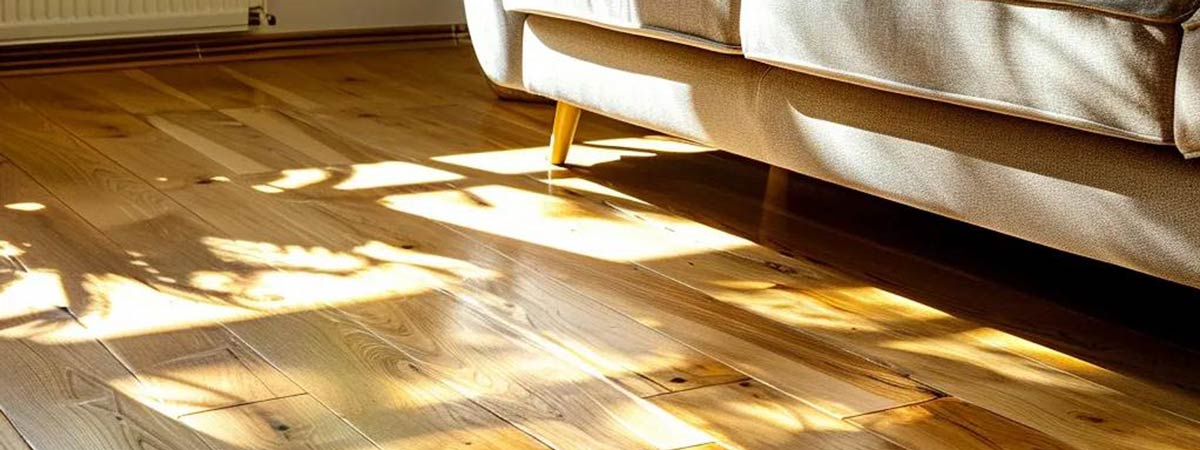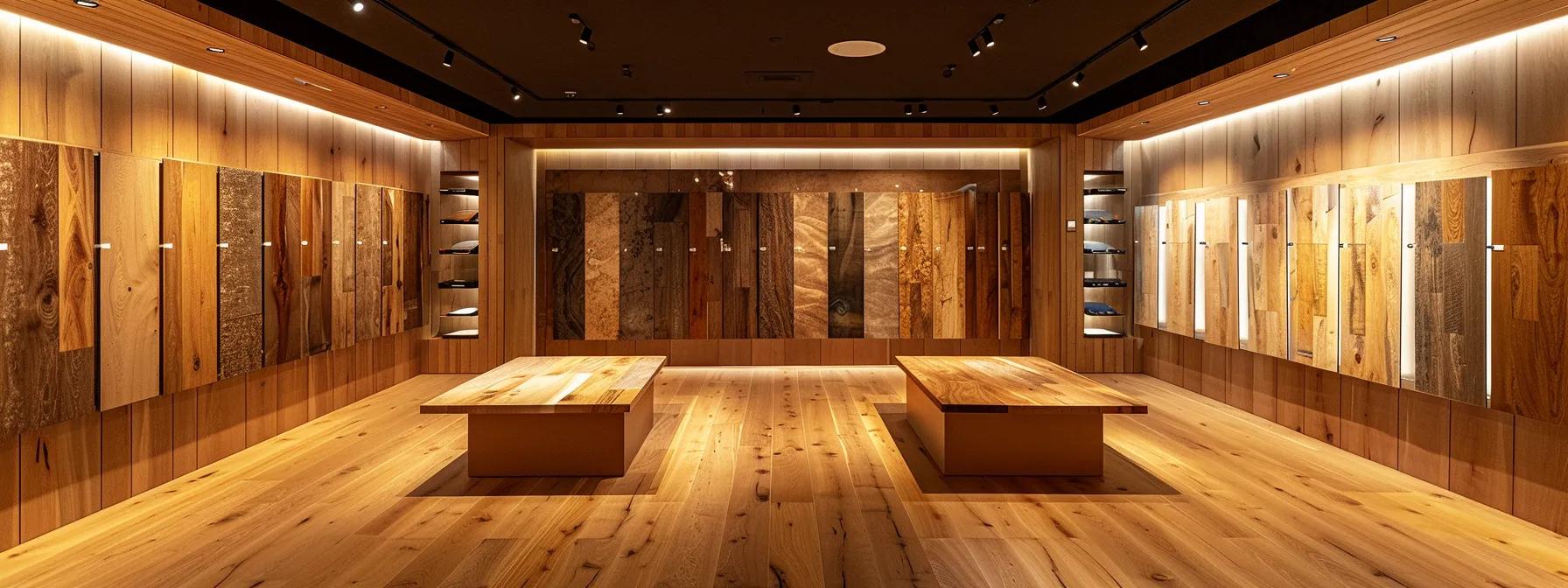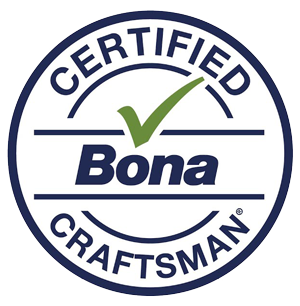Essential Tips for Finding Local Experts and Hiring the Best Floor Refinishing Companies Near You
Hardwood floor refinishing companies near me can transform worn, scratched boards into stunning surfaces that last for years. This guide delivers essential strategies to locate certified local experts, understand the refinishing process, compare realistic costs, vet contractor credentials, schedule maintenance, and embrace eco-friendly finishes. You will learn how to research and evaluate service providers, decode the step-by-step refinishing workflow, benchmark pricing factors, ask critical vetting questions, preserve your newly refinished floor, decide between refinishing and replacement, and adopt the latest sustainable options. By following these proven tips, you’ll secure high-quality workmanship and lasting value from your nearest wood floor refinishing companies.
Table of Contents
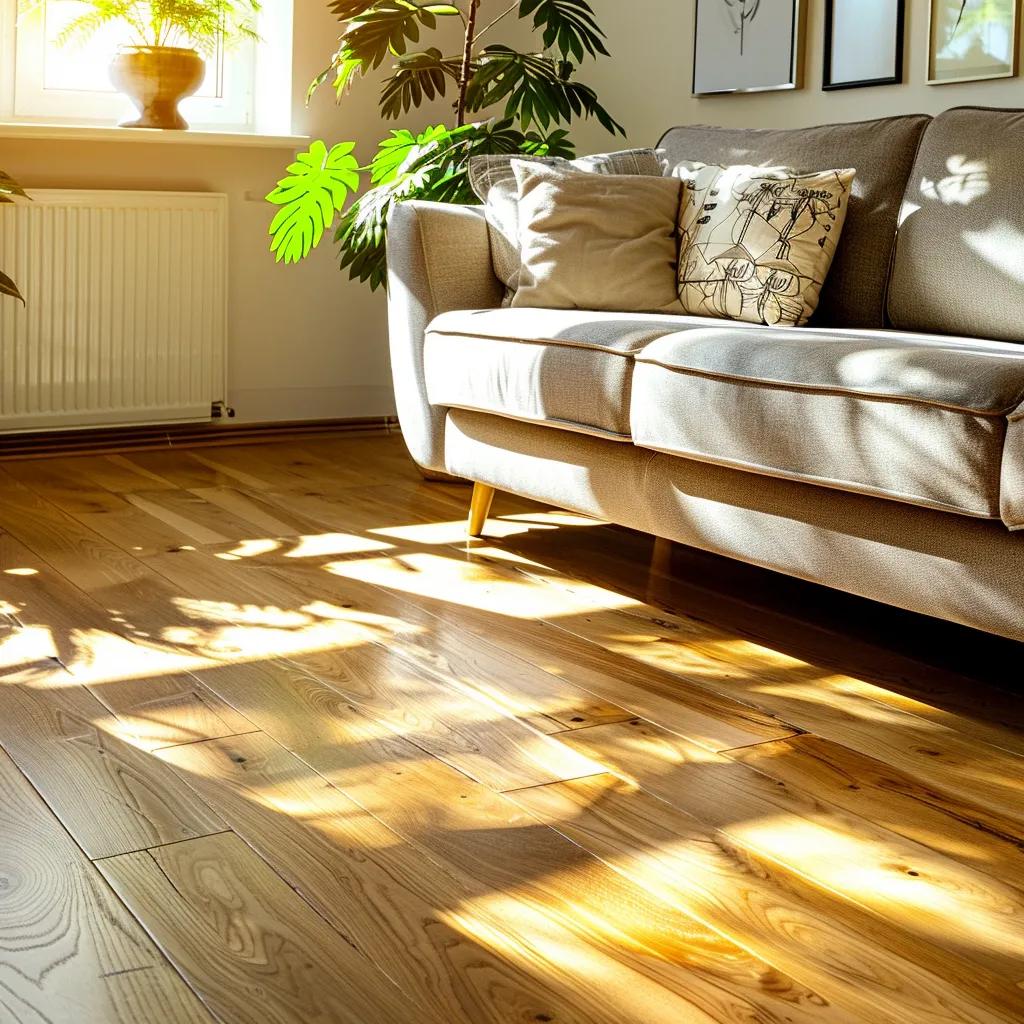
How Do You Find Reputable Hardwood Floor Refinishing Companies Near Me?
Finding reputable hardwood floor refinishing contractors near you begins with targeted research and systematic vetting that narrows down trustworthy professionals.
What Are the Best Ways to Search for Local Floor Refinishing Services?
Homeowners often gather leads from multiple channels to compile a robust list of floor refinishing companies near me.
- Perform targeted online searches using “floor refinishing companies near me” to discover rated local businesses.
- Explore local business directories and community bulletin boards for licensed contractors in your area.
- Join neighborhood social media groups or home-improvement forums to request personal referrals.
- Ask friends, family, or realtors for firsthand recommendations on wood floor refinishing companies near me.
These methods yield a comprehensive pool of candidates ready for deeper evaluation before making a hiring decision.
How to Evaluate Hardwood Floor Refinishing Contractors in Your Area?
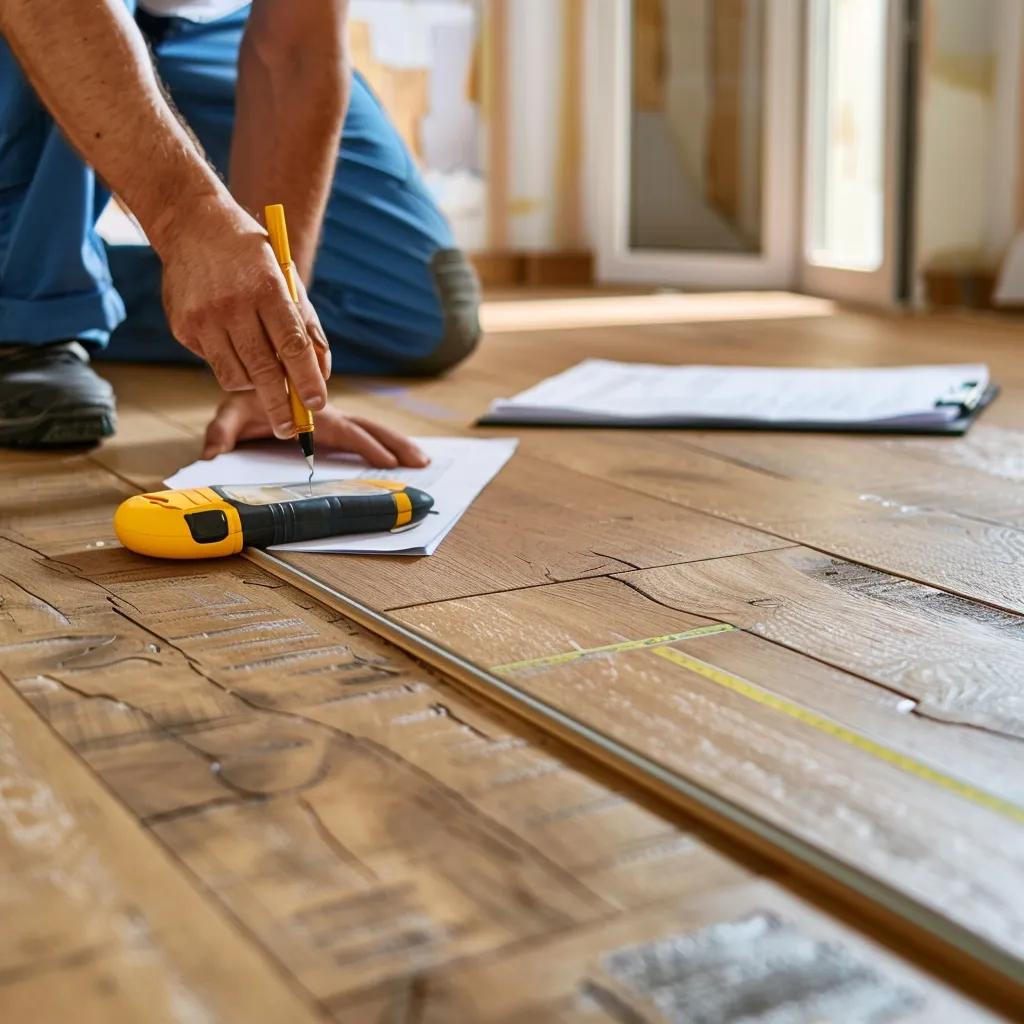
Evaluating contractors hinges on verifying qualifications, inspecting past work, and confirming reliability.
- Review portfolios or photo galleries of completed projects to assess finishing quality and attention to detail.
- Check professional certifications or memberships in associations such as the National Wood Flooring Association.
- Contact previous clients to confirm punctuality, communication, and satisfaction levels.
- Compare estimates from at least three contractors to ensure competitive pricing and service scope.
Evaluating performance history and credentials reveals which refinishing professionals consistently deliver top-tier results, setting the stage for hiring decisions.
What Licensing and Insurance Should Local Refinishing Experts Have?
Professional hardwood floor refinishers must carry contractor licenses and insurance to protect homeowners and workers. A valid contractor license demonstrates compliance with local regulations, while general liability and workers’ compensation policies cover damage or injuries on site. Confirming these credentials mitigates financial risk and confirms you’re dealing with a responsible service provider before finalizing any agreements.
How Can Customer Reviews and Testimonials Help Choose Local Experts?
Online reviews and written testimonials provide social proof of a refinishing company’s expertise and reliability. Scan platforms like Google Business Profile, Yelp, and Houzz for detailed feedback on workmanship, timeliness, and cleanup practices. Look for patterns in praise or complaints to distinguish consistently high performers from those who struggle with quality or communication. Insight from past clients guides you toward the most reputable local experts ready to
to showroom condition.
Understanding the research and vetting steps lays the groundwork for selecting contractors who excel at each stage of the refinishing process.
What Is the Hardwood Floor Refinishing Process and How Does It Affect Hiring Decisions?
Hardwood floor refinishing is the multi-step procedure of sanding, staining, and sealing existing planks to renew appearance and durability, and knowing each phase helps you choose contractors equipped with the right tools and expertise.
What Are the Key Steps in Hardwood Floor Sanding and Refinishing?
Hardwood floor refinishing begins with careful surface preparation, followed by progressive sanding, optional staining, and protective finishing.
- Preparation: Remove furniture and clean debris to expose bare wood.
- Sanding: Use drum sanders and edge sanders in multiple grit sequences to level and smooth the surface.
- Staining (optional): Apply wood stain evenly to achieve the desired color.
- Finishing: Seal with oil- or water-based polyurethane or alternative coatings.
Mastering these steps guides you in verifying that contractors follow industry-standard workflows and use proper equipment for reliable outcomes.
How Does Dustless Hardwood Floor Refinishing Work and Why Choose It?
Dustless hardwood floor refinishing employs specialized sanding machines with integrated vacuum systems that capture over 95 percent of airborne dust at the source. This method enhances indoor air quality, reduces cleanup time, and prevents dust from settling on furnishings.
Benefits of Dustless Refinishing
Dustless hardwood floor refinishing systems use specialized equipment to capture airborne dust, improving indoor air quality and reducing cleanup time. These systems can capture over 95% of the dust generated during sanding, leading to a healthier work environment and a cleaner finish.
This citation supports the article’s discussion of dustless refinishing and its benefits for indoor air quality.
What Types of Finishes Should You Expect from Professionals?
Below is an overview of common professional finishes, their key attributes, and practical benefits:
| Finish Type | Attribute | Value |
|---|---|---|
| Oil-Based Polyurethane | Durability | High scratch resistance, amber tone |
| Water-Based Polyurethane | VOC Content | Low odor, crystal-clear finish |
| Hard Wax Oil | Sheen & Texture | Matte, natural feel with easy spot repair |
How Long Does Hardwood Floor Refinishing Typically Take?
A standard refinishing project for 500–1,000 sq ft usually spans 2–4 days:
- Day 1: Preparation and coarse sanding
- Day 2: Fine sanding and floor screening
- Day 3: First coat of finish and drying time
- Day 4: Second coat of finish and final curing
Understanding this timeline ensures you select a company that commits to efficient scheduling and keeps disruption to a minimum.
Gaining clarity on the full refinishing workflow enables you to match contractor capabilities to each critical project phase.
How Much Does Hardwood Floor Refinishing Cost and What Influences Pricing Near Me?
Hardwood floor refinishing costs typically range from $3 to $8 per square foot, influenced by wood species, floor condition, finish selection, and local labor rates. sanding and refinishing
Cost of Hardwood Floor Refinishing
The cost of hardwood floor refinishing can vary significantly based on several factors, including the type of wood, the existing condition of the floor, and the chosen finish. The average cost typically ranges from $3 to $8 per square foot, but can be higher for hardwood floor refinishing or complex projects.
This citation supports the article’s claims about the average cost range for hardwood floor refinishing and the factors that influence pricing.
What Is the Average Cost Range for Refinishing Hardwood Floors Locally?
Most local hardwood floor refinishers charge between $3 and $5 per square foot for full sanding and two coats of polyurethane; exotic woods or premium finishes can push rates up to $8. Obtaining multiple bids clarifies the market rate in your region and helps set realistic budgeting expectations.
Which Factors Affect Hardwood Floor Refinishing Costs?
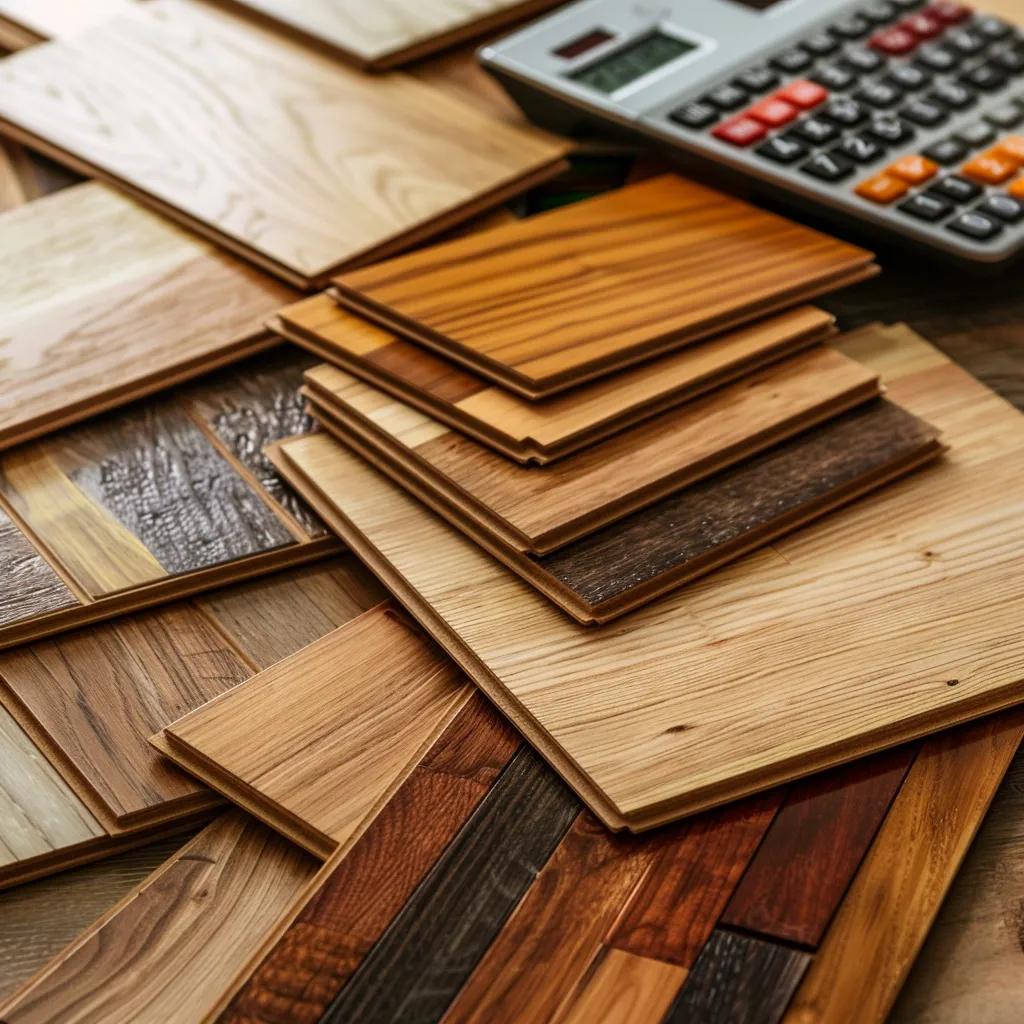
Several variables drive refinishing expenses:
- Wood species and age dictate sanding intensity and staining complexity.
- Extent of surface damage or wear influences repair time and materials.
- Choice of finish—oil-based, water-based, hard wax oil—affects material costs and application steps.
- Workspace accessibility and home layout impact labor hours and equipment setup.
- Local labor rates and seasonal demand shape the final quote.
These cost drivers clarify why estimates can differ and guide you toward the most transparent proposals.
How Do Additional Services Like Repairs or Board Replacement Impact Cost?
Repair services such as plank replacement, gap filling, and stair refinishing add both materials and labor. The table below shows typical service elements and associated cost factors:
| Service | Attribute | Value Range |
|---|---|---|
| Board Replacement | Material & Labor | $20–$50 per board |
| Gap Filling & Caulking | Time & Supplies | $1–$2 per linear foot |
| Staircase Refinishing | Complexity | $300–$600 total for 10–15 steps |
What Are the Cost Differences Between DIY and Hiring Local Professionals?
Hiring professionals typically costs more upfront but delivers expert craftsmanship, warranty coverage, and guaranteed cleanup. DIY refinishing can save on labor fees but often requires equipment rental ($100–$200/day), lacks professional-grade machinery, and carries higher risk of uneven sanding or finish defects. Weighing time investment, skill level, and quality expectations clarifies whether a DIY or professional approach is the smarter choice for your project.
Analyzing these pricing elements empowers you to compare quotes accurately and choose the option that best fits your budget and performance requirements.
What Questions Should You Ask Hardwood Floor Refinishing Contractors Before Hiring?
Asking targeted questions ensures you engage a contractor who offers transparent pricing, clear timelines, and reliable post-job support.
How to Verify Contractor Experience and Past Project Quality?
Verify experience by reviewing a contractor’s project gallery and requesting site visits to completed jobs. Ask for detailed case studies that highlight specific challenges—such as water damage or antique floor restoration—and learn how each was resolved. Confirming real-world performance guarantees you partner with seasoned specialists who can handle your unique refinishing needs.
What Should Be Included in a Hardwood Floor Refinishing Quote?
A comprehensive quote should detail:
- Square footage and number of sanding passes
- Type and number of finish coats
- Brand and type of finish materials
- Scope of floor repairs or board replacements
- Estimated project timeline, cleanup procedures, and disposal fees
This level of specificity prevents hidden costs and aligns expectations on work scope and final deliverables.
How to Confirm Warranty and Post-Refinishing Support from Experts?
Reputable contractors provide written warranties covering finish adhesion, wear resistance, and touch-up services. Confirm the warranty duration, covered issues, and response time for warranty claims. Clear post-service support ensures your refinished floors maintain their beauty and durability over time.
These vetting questions build confidence in contractor selection and pave the way for a smooth refinishing experience.
How Do You Maintain and Care for Hardwood Floors After Refinishing?
Proper maintenance preserves the finish and extends the lifespan of your refinished hardwood floors by combining gentle cleaning and timely preventative measures. sanding and refinishing
What Are the Best Cleaning Products and Techniques for Refinished Floors?
Use pH-neutral cleaners and microfiber mops designed for sealed wood surfaces to remove dirt without stripping the finish. Avoid water-soaked mops and harsh detergents that can dull sheen or seep into seams. Popular products include Bona Hardwood Floor Cleaner and Murphy’s Oil Soap for gentle, residue-free maintenance.
Regular adoption of these techniques sustains finish integrity and prepares the floor for periodic recoating when needed.
When and How Should You Recoat Hardwood Floors?
Recoating involves light surface sanding (screening) and applying one fresh layer of finish. Most floors benefit from recoating every 3–5 years, depending on traffic and wear patterns. The process includes cleaning, screening with fine-grit pads, tack-cloth dust removal, and a single thin coat of the original finish. Scheduled recoating refreshes surface protection without a full sanding cycle.
Planning recoating intervals ensures your floors remain resilient and visually appealing with minimal disruption.
How Can Proper Maintenance Affect the Longevity of Your Refinishing Work?
Consistent maintenance prevents premature wear and preserves gloss retention, reducing the frequency of major refinishing. Protective measures—such as using area rugs in high-traffic zones and felt pads under furniture—minimize scratches and extend the time between full refinishing. Combined with occasional recoating, these practices deliver maximum lifespan from your professional refinishing investment.
Maintaining a disciplined care routine safeguards both appearance and performance, closing the loop on long-term floor preservation.
When Should You Choose Hardwood Floor Refinishing Over Replacement?
Hardwood floor refinishing is the preferred solution when surface wear, light scratches, or mild discoloration impair your floor’s appearance, whereas replacement becomes necessary for severe structural damage or extensive rot.
What Are the Signs That Your Hardwood Floor Needs Refinishing?
- Dull or faded sheen across large areas
- Shallow scratches and scuffs that penetrate the finish
- Discoloration from sunlight or spills
- Minor water stains or pet damage
Spotting these early indicators ensures refinishing addresses the issues before irreversible wear demands full board replacement. sanding and refinishing.
How Does Refinishing Compare to Full Floor Replacement in Cost and Benefits?
| Option | Average Cost | Key Benefit |
|---|---|---|
| Refinishing | $2,400–$6,400 | Restores existing floors at lower cost |
| Replacement | $8,000–$12,000 | Installs brand-new boards and layout |
Can Local Experts Handle Specialized Refinishing Like Antique or Damaged Floors?
Yes—many refinishing specialists offer niche services such as antique floor restoration, parquet pattern repair, and custom stain matching. They deploy micro-sanding techniques, wood consolidants for rot-prone planks, and bespoke finishing systems to revive historic or severely compromised floors. Choosing an expert with proven experience in specialized
assures successful restoration of unique flooring challenges.
Evaluating specialized service capabilities guarantees you find a contractor equipped to address every facet of your floor’s condition.
What Are the Latest Trends and Eco-Friendly Options in Hardwood Floor Refinishing?
The newest refinishing trends center on sustainable materials, advanced dust-containment systems, and low-VOC products that protect health and the environment.
Which Modern Finishes Are Popular Among Local Refinishing Experts?
- Water-based polyurethane for its ultra-clear appearance and minimal odor
- Hard wax oils that deliver a matte, natural texture with easy spot maintenance
- Acid-cured finishes prized for superior hardness and chemical resistance
These contemporary finishes offer durability, aesthetic versatility, and reduced environmental impact.
How Are Dustless and Low-VOC Refinishing Methods Changing the Industry?
Dustless sanding machines with HEPA vacuums capture over 95 percent of airborne particles, while low-VOC finishes dramatically reduce indoor air pollution. Together, they create a healthier work environment, accelerate cleanup, and meet growing homeowner demand for eco-conscious home improvements. This combination elevates safety standards and positions refinishing as a cleaner, greener service.
Why Is Choosing Sustainable Refinishing Services Important for Homeowners?
Sustainable refinishing reduces volatile organic compound emissions, protects indoor air quality, and aligns with green building certifications. Homeowners benefit from improved health, elevated resale value, and compliance with environmental standards. Embracing eco-friendly practices supports resource conservation and demonstrates social responsibility while delivering beautiful, long-lasting floors.
Adopting these innovations ensures your refinishing project honors both performance and planetary priorities.
Living floors deserve expert care and sustainable solutions—start your search now for certified local specialists who blend craftsmanship, transparency, and environmental stewardship.
Refinished hardwood floors bring renewed beauty and value to any home. By following these proven guidelines—researching contractors, understanding processes, budgeting accurately, vetting credentials, maintaining the finish, and embracing sustainable trends—you’ll partner with skilled professionals who deliver exceptional, long-lasting results. Trust in vetted local experts to transform your floors and enjoy decades of warmth and durability underfoot. Continuous care and timely updates maximize your investment, ensuring that your refinished floors remain a source of pride and comfort.
Frequently Asked Questions
What Should I Expect During the Hardwood Floor Refinishing Process?
How Can I Ensure My Hardwood Floors Are Refinished Safely?
What Are the Long-Term Benefits of Refinishing Hardwood Floors?
How Do I Choose the Right Finish for My Hardwood Floors?
What Maintenance Should I Perform After Refinishing My Floors?
Can I Refinish My Floors Myself, or Should I Hire a Professional?
What Are the Environmental Benefits of Choosing Eco-Friendly Refinishing Options?
What types of hardwood floors can be refinished?
Conclusion
Refinished hardwood floors enhance the beauty and value of your home while providing lasting durability. By following the essential tips outlined in this guide, you can confidently select qualified local experts who will deliver exceptional results. Prioritize ongoing maintenance and embrace sustainable practices to maximize your investment. Start your journey today by exploring our network of trusted hardwood floor refinishing professionals near you.


